Scientists Discover Ancient Stone Is Actually a Treasure Map
We’re diving into the world of long-lost riddles and treasures. This isn’t your average pebble you’d idly toss the next time you’re out. We’re talking about the Saint-Belec slab, a relic that stepped out of time from a staggering 4 millennia ago.
The stone was discovered in 1900, but its actual nature was not appreciated then. Researchers are currently referring to it as the “Brittany map.” The stone is currently located in the west of France in the area of Brittany, hence the name.
Bronze Age's Google Maps
The passion for treasure maps is not necessarily a modern thing. In 2021, a slab measuring large enough to have been used as an ancient dining table was uncovered as the precious map directing to the concealed archaeological treasures known as the Saint-Belec slab.
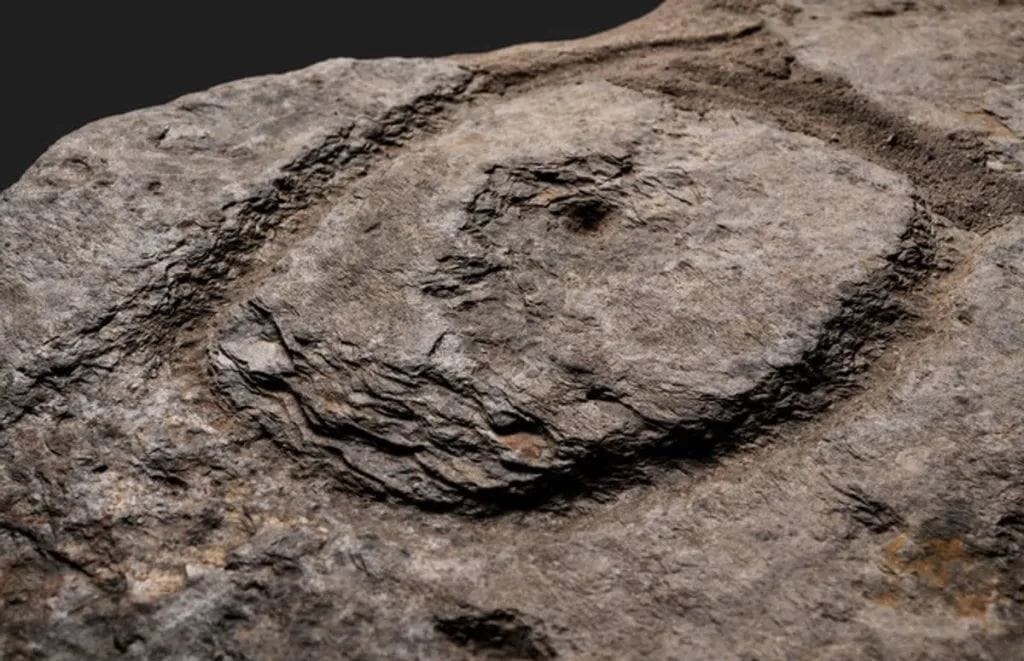
Source: D. Glicksman/Inrap
Professor Yvan Pailler at Western Brittany University also finds this fascinating, as the slab is a great way to find archaeological sites. He says we “never work like that.” How nice! A fresh change from boring methods.
A Tale With Twists and Turns
Plot twists are usually attached to the best stories. This stone slab was found in 1900, but it vanished for exactly one century. Was this perhaps a game of hide-and-seek? Nope, it was just hanging out in some guy’s castle’s cellar. The stone returned to the public eye in 2014.
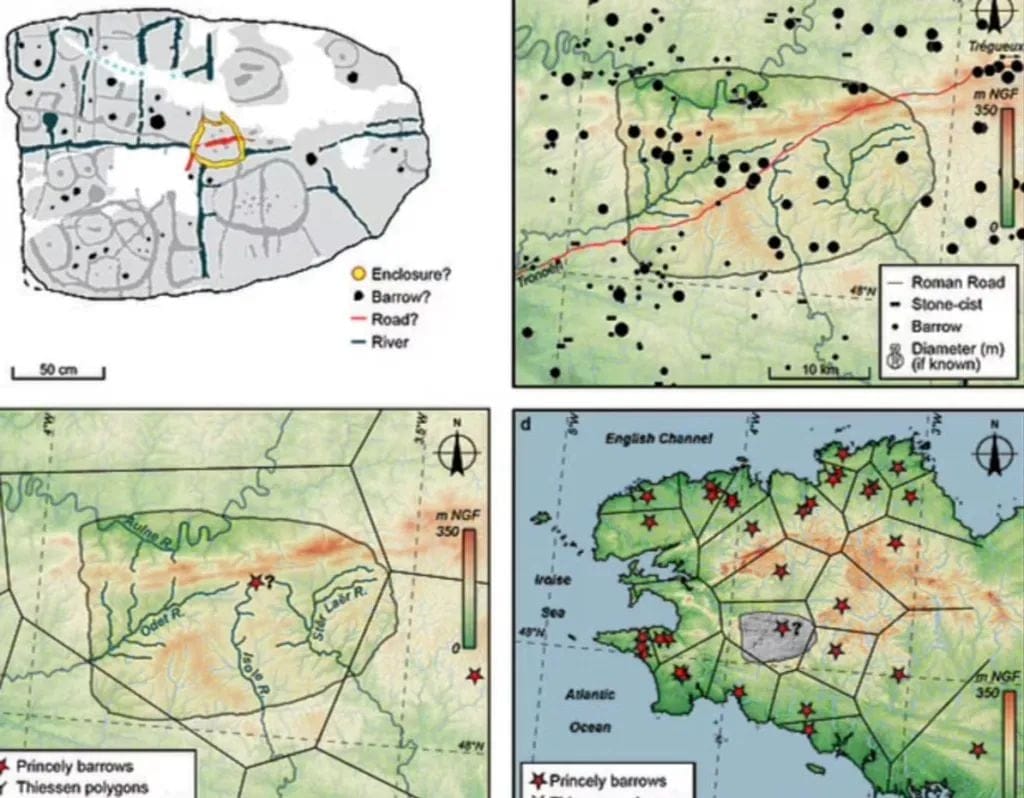
Source: University of Western Brittany
Now, the burning question: Where does the map lead? It’s not a bunch of chests full of golden coins, yet it could be better. Pailler believes that it has something to do with a place in Brittany.
Decoding the Ancient GPS
They don’t simply admire the rock. They’re puzzling over its engravings, trying to find its place in history. Pailler’s mission is to discover the era of the slab. But this doesn’t mean an evening out with the slab.
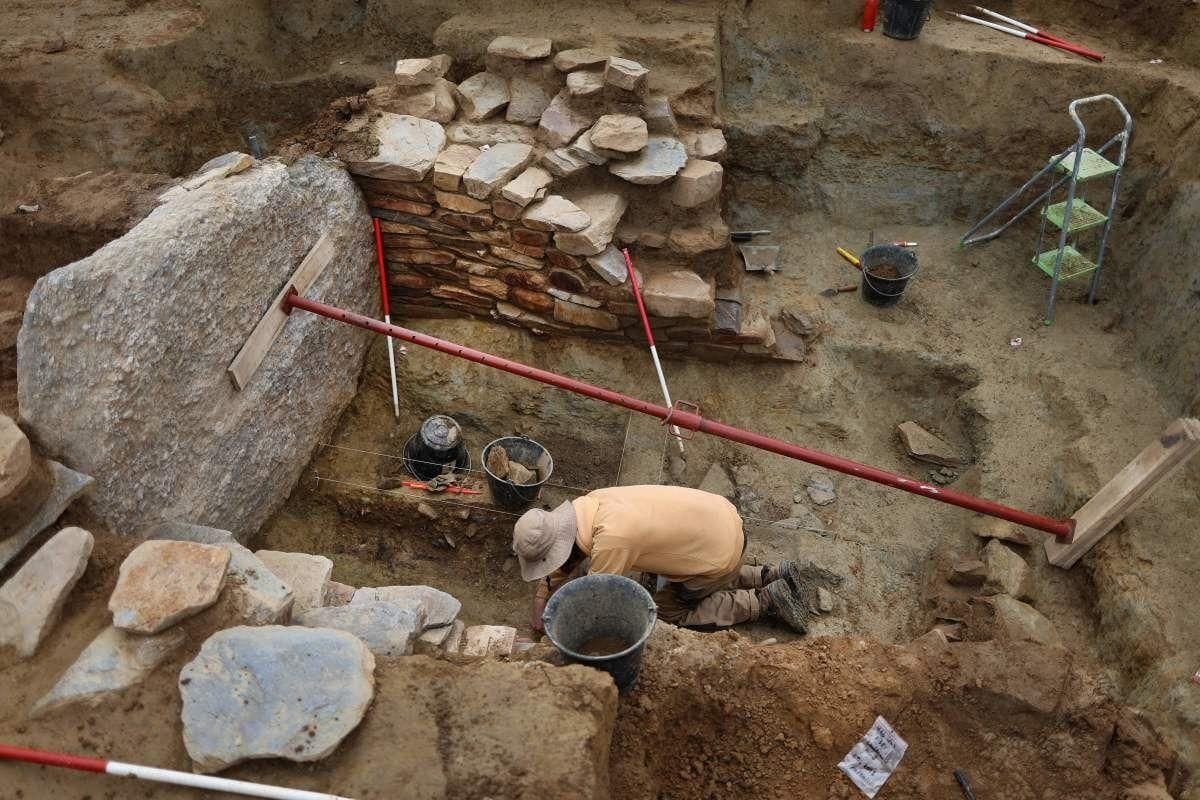
Source: Getty Images
The best part? Their investigation efforts are reaping rewards. They have discovered more fragments to complete the picture of this ancient puzzle.
Mapping it Out
These intellectuals were also amazed by the stone’s similarity to the Odet Valley region of Brittany when they compared it with modern maps. They found symbols that represented rivers and mountains. Out of these, they identified what they consider to be the Odet River.
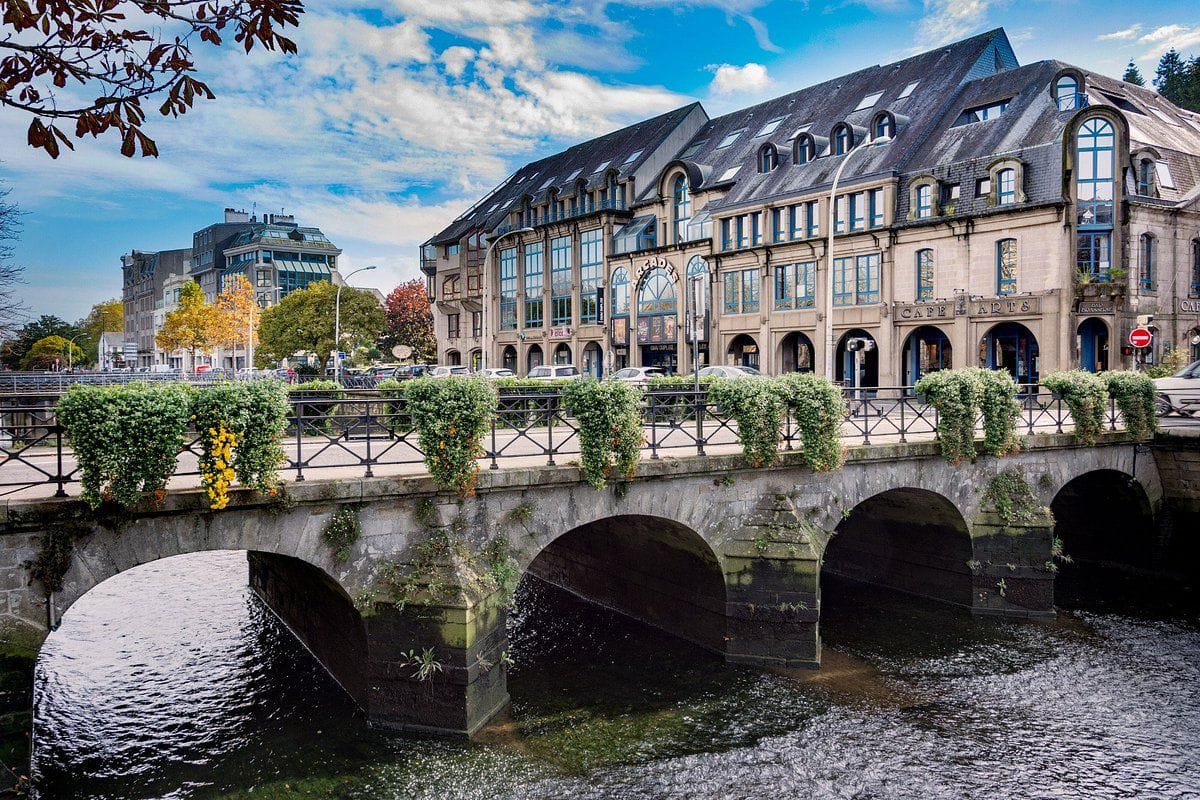
Source: TripAdvisor
Nevertheless, not all symbols have been cracked. At this point, they could lead people to an old Starbucks or, more likely, maybe burial sites or other places of historical significance.
Unleashing a Time Capsule
The slab is not simply rock but a time machine to the past. However, the more researchers go into it, the better a picture is formed about the society of Bronze Age civilization. Every line and drawing could represent a city, trading point, or perhaps even an old concert arena.
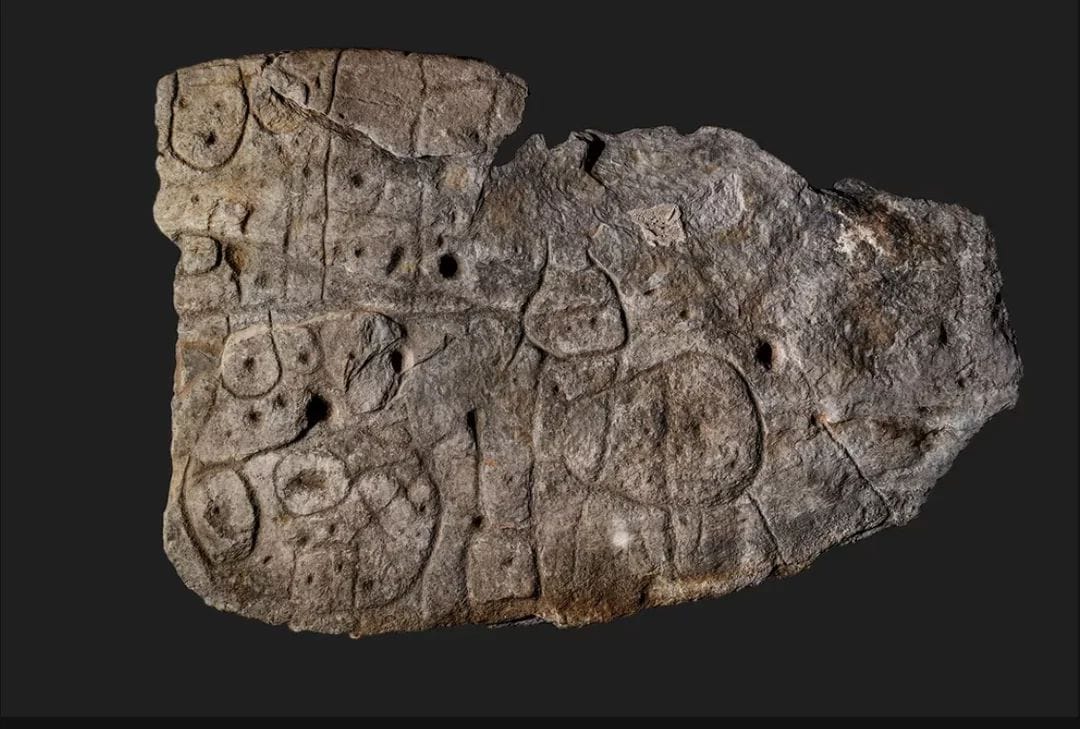
Source: Reddit
The researchers’ enthusiasm is contagious. As we continue to discover more, we can see civilizations with their own systems, landmarks, and treasures. And so, with these amazing revelations, what happens next in this enlightening journey?
The Archaeological Gold Rush
The race is on! The archaeological world is electrified with the discovery becoming popular. To reveal the secret that is hidden behind those lines, everyone aspires to be the first one. Will it be hidden temples? Lost cities? Bronze Age Netflix subscriptions?
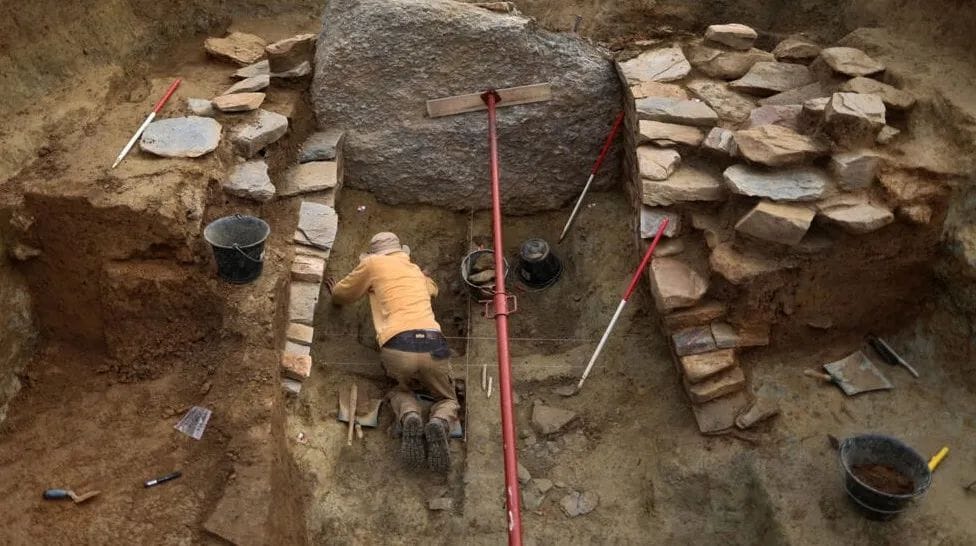
Source: Fred Tanneau/AFP
Although no gold prospects exist in this new Wild West, scientists worldwide feel the excitement. The coffee pots never stop going, and teams are starting to mobilize and sharpen their tools.
Deciphering the Undecipherable
Many of these symbols are similar to decoding teenagers’ text messages. Incomprehensible! Some resemble animals, whereas some look like bizarre sketches.
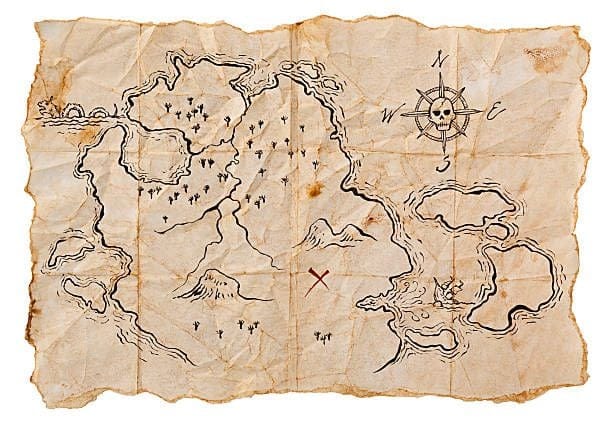
Source: Getty Images
But despite that, they have accomplished much, and several puzzling pieces still need to be solved. In short, they face different daily challenges, but each challenge brings researchers a step closer to the ancient people.
Tech Meets Tradition
Some recent studies have sought to intermix contemporary technologies with prehistoric artifacts. Consider how one could exploit artificial intelligence, 3D modeling, and even virtual reality. It may not take long, in fact, for us “to walk” through this Bronze Age area seated at home in a single click.
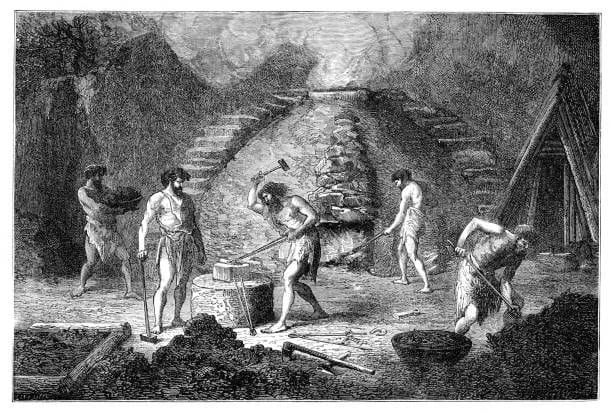
Source: Getty Images
It is unbelievable how the old and new can work together in harmony. Researchers aim to revolutionize the discovery phase through advanced technological measures, thus breathing new life into ancient bronzes.
Are We the Only Ones Searching?
Word of mouth is spreading faster, with even international archaeologists and historians joining the race. Others give advice while others have gadgets, and others plain excitement. This “treasure” is no longer just for France; instead, it’s going international!
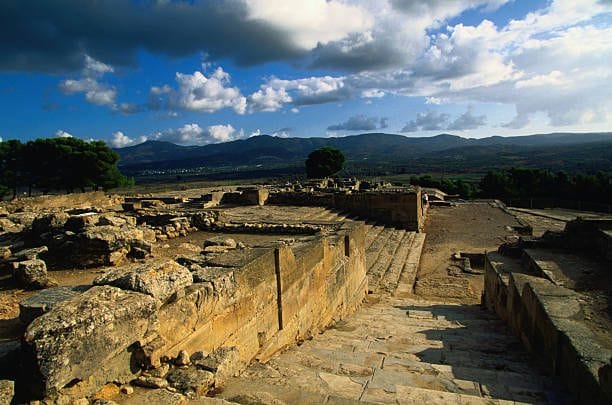
Source: Getty Images
Researchers all over the world are fascinated by this slab. And for good reason, as it could tell humans a lot about the Bronze Age and how people lived.
Bronze Age Fashion & Lifestyle
What did they wear? What did they eat? If this map leads to settlements, we may be able to decipher their everyday activities. Were they vegetarians? Did they have pets?
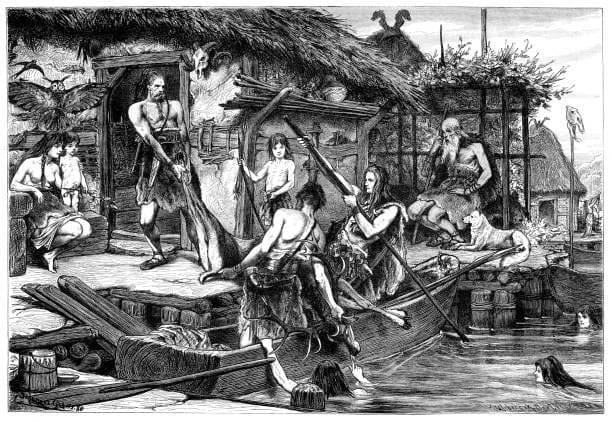
Source: Getty Images
With knowledge of regional topography, researchers can formulate predictions on lifestyle during the Bronze Age era that may even teach us about our modern day life.
The Environmental Angle
It isn’t easy today to imagine what the world was like 4,000 years ago. Taking into consideration the territory, weather conditions, vegetation, etc. helps to understand the map better. Because of this, environmentalists want to know if and how the area has changed.
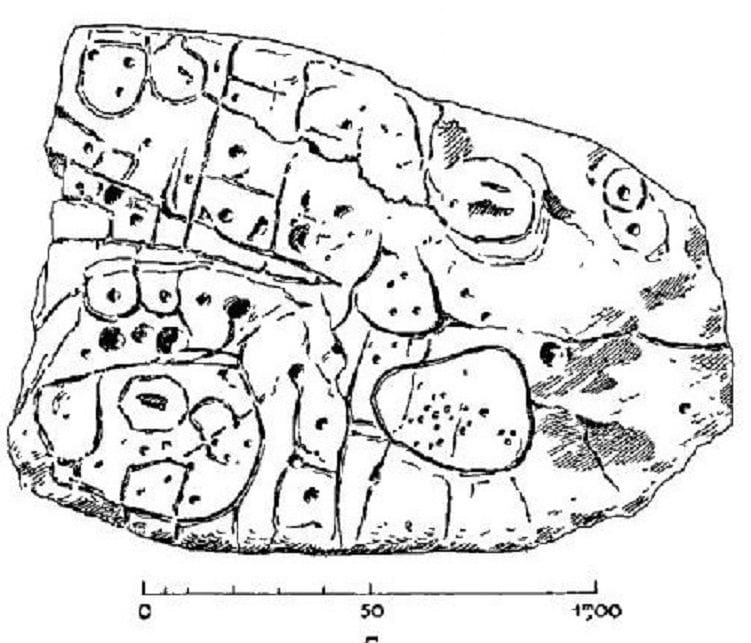
Source: Wikipedia
Needless to say, the world is captivated by the Saint-Belec slab and the discoveries it holds. The search is not merely for treasures but to uncover the story of the history of our world.
